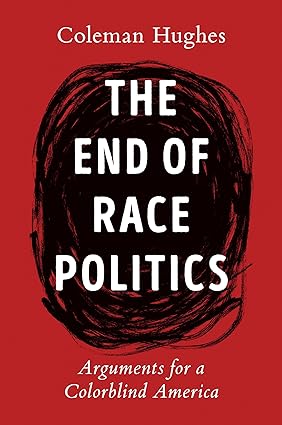Prospective veep nominee Tim Walz made a libertarian-sounding appeal last week in Eau Claire, WI:
GOVERNOR WALZ: Now, look, we’re pretty neighborly with Wisconsin. We get our friendly battles. But in Minnesota, just like in Wisconsin, we respect our neighbors and the personal choices they make — (applause) — even if — even if we wouldn’t make the same choices for ourselves, because we know there’s a golden rule: Mind your own damn business. Mind your own damn business.
Uh, fine. Unfortunately, given the context, it's pretty easy to translate that into what he really means: "Abortion should be legal up to nine months." Pretty much everything else is fair game for being government business.
Still, to honor the actual words, not their speaker, there is our Amazon Product du Jour for you. No political endorsement from Pun Salad implied.
But what I really want to talk about is this WSJ op-ed, with the libertarian headline: The FEC Has No Business Regulating AI.
Reader, the pleasant surprise is: the op-ed is written by Sean Cooksey, chairman of the Federal Election Commission.
For more than a year, the Federal Election Commission has faced calls to regulate the use of artificial intelligence in political campaigns. But we have neither the expertise nor the legal authority to do so. That’s why I offered a proposal to end the agency’s pending rulemaking on AI with no further action. On Aug. 15, the commission is set to vote on it.
Any special rules for political ads generated with AI that the FEC might issue would exceed its statutory authority. Existing laws do charge the FEC with administering and enforcing disclaimer and disclosure requirements for political ads, but Congress hasn’t given us the power to draft regulations specifically for AI or any other technology.
More practically, we don’t have the experience or expertise to craft effective and appropriately tailored rules. Neither do most other federal agencies, including the Federal Communications Commission, Federal Trade Commission, and Equal Employment Opportunity Commission—each of which has put out reports or proposed rules on the matter. These agencies can’t even agree on a definition of AI. Defining the scope of regulatory authority is properly the job of Congress, not unelected bureaucrats.
A refreshing bit of honesty, and I hope the proposal goes down to ignominious defeat tomorrow.
(See, Governor Walz, that's what "minding your own damn business" really looks like.)
Also of note:
-
Speaking of Walz. Robby Soave puts another pin in the Governor's libertarian balloon: Tim Walz Was Dead Wrong About Misinformation and Free Speech.
Conservatives on social media did manage to dig up an old clip of Walz making an alarming and false claim: "There's no guarantee to free speech on misinformation or hate speech, and especially around our democracy."
Walz is wrong, of course: The First Amendment, which vigorously protects Americans' free speech rights, does not distinguish between good information and misinformation. Moreover, so-called hate speech—an arbitrary category, as different people find different sorts of speech to be hateful—is quite obviously protected.
Of course, this means that Walz is ignorant about that bit of Constitutional law, inconvenient that he took an oath to support it.
And, also of course, that means he doesn't think his "mind your own damn business" rule applies here.
-
A convenient amnesia. Jim Geraghty points it out: The Media Have Forgotten Why They Exist.
Between now and Election Day, count the number of “news” stories you read that have a subtext of: Isn’t Kamala Harris awesome? Isn’t Tim Walz awesome? And for that matter, if you go looking in the right-of-center press, you can find stories that amount to: Isn’t Donald Trump awesome? Isn’t J. D. Vance awesome?
And if you really go looking in some of the deeper corners of the internet, you can find stories arguing that Robert F. Kennedy is awesome, and that that bear cub had it coming.
[…]
Of course, the news media’s job isn’t, traditionally, to tell you how awesome a presidential candidate is. The campaigns are going to spend a lot of money telling you how awesome the candidate is. The news media is supposed to be giving you a full portrait, warts and all, of the options before you. You’re hiring this person for a four-year contract to run the executive branch and be commander in chief. That is a role with serious responsibilities.
No, Kamala Harris is not your “Mom-ala,” Tim Walz is not your dad, and Donald Trump is not your daddy.
Perhaps the most disturbing aspect of a political landscape that is a Hieronymus Bosch painting of human dysfunction is the number of Americans who have forsaken their actual relationships with their actual family members and chosen to project their personal psychodramas onto current events, casting political figures as the family they wish they had.
-
Could I suggest "enhanced interrogation"? Nah, probably inappropriate. But Jim Geraghty (yes, again) has some suggestions for The Questions the Media Should Be Asking Kamala Harris. The first set:
We are told, through your campaign staff, that you no longer hold the positions you espoused when seeking the Democratic presidential nomination in 2020. Back then, you supported banning fracking, abolishing Immigration and Customs Enforcement, defunding the police, instituting mandatory buybacks of assault weapons, eliminating private health insurance, and guaranteeing federal jobs.
In 2019, you said you were open to expanding the size of the Supreme Court. Now, a spokesman says you no longer hold that position.
You spent much of your time in the U.S. Senate and presidential campaign arguing, “We are not going to treat people who are undocumented and cross the border as criminals,” and “an undocumented immigrant is not a criminal.” Now, according to your staff, your position is that “unauthorized border crossings are illegal.” What caused you to change your mind on these issues? Did you learn more that convinced you that your old positions were wrong, unfeasible, or ill-informed? Or is it that those were the positions that you felt were most popular in a Democratic presidential primary, and now you’re running in a general election? What guarantee does any voter have that your new positions won’t be as quickly and quietly abandoned as the old ones once you’re elected?
I'd suggest something shorter and simpler: "Would you significantly change any current Biden Administration policies, or would a Harris Administration just continue all of them?"
| Recently on the book blog: |
![[Amazon Link]](/ps/asin_imgs/B0DCG8JJCN.jpg)



![[The Blogger and His Dog]](/ps/images/me_with_barney.jpg)



